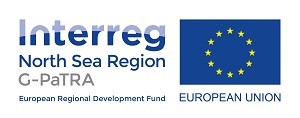Spatial Sciences joins research into Green Passenger Transport in Rural Areas

Researchers from the Faculty of Spatial Sciences in Groningen and a consortium of 12 other partners from across Europe are working on a project on green transport in rural areas. The G-PaTRA – Green Passenger Transport in Rural Areas – project, which will run until 2021, will be led by Robert Gordon University from Aberdeen, working in collaboration with partners from UK, the Netherlands, Denmark, Germany, Norway, and Belgium. The funding was awarded by the European Union Interreg North Sea Region programme to support its “green mobility” priority.
G-PaTRA will promote green transport and mobility by enhancing the capacity of authorities to reduce CO2 from personal transport in remote, rural and island areas. It will embed more zero emission vehicles in rural transport systems and improve available passenger transport resources.
“Rural public transport is high carbon, subsidy intensive and struggles to provide a viable alternative to the car,” said David Gray, Professor of Transport Policy at RGU’s School of Creative and Cultural Business, who is leading the project.
Carbon reduction strategies for urban transport are rarely transferrable to rural areas, innovations in green rural transport are sorely needed to help governments meet ambitious carbon reduction targets.”
At the consortium’s inception meeting in Aberdeen in October 2017 the partners established some of the lighthouse projects which will provide the basis for the project. These include the trialling of a zero emissions bus in the Highlands of Scotland, combinations of special and regular passengers transport in Groningen and Drenthe, and ferries powered by fuel cells in Norway.
Last week the first expert meeting of the G-PaTRA partners took place in Aviemore, in the snow of the Scottish Highlands, attended by professor Dirk Strijker of Spatial Sciences and representatives of the provinces of Groningen and Drenthe. A number of specialists gave overviews of green solutions and hindrances to overcome. There was also an intensive discussion of the metrics for the project was held: what to measure and how to measure, to be able to show the potential steps forward.
| Last modified: | 26 February 2020 09.40 a.m. |
More news
-
23 April 2024
From battling against the water to living with the water
Margo van den Brink, associate professor of Water and Planning, says that we should adapt our spatial design to the changing climate. This implies difficult choices have to be made because the space is limited and the needs are great.
-
16 April 2024
Investors consider region a risk
Investment in real estate appears to be an important explanation for the gap between big cities and the region, argues Michiel Daams, associate professor of Economic Geography of the Real Estate Market. He conducted research on investments in the...
-
28 March 2024
Felix Pot wins Van der Knaap Dissertation Prize from Royal Dutch Society of Sciences and Humanities
Felix Pot has won the prestigious Van der Knaap Dissertation Prize from the Royal Dutch Society of Sciences and Humanities. He receives this award for his research on the perceived accessibility in rural areas, on which he defended in his...
